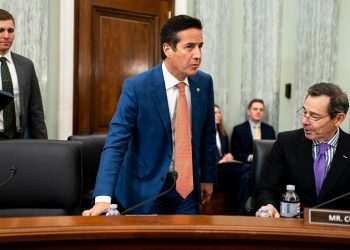North Carolina Gov. Josh Stein (D) is urging the state’s congressional delegation to vote against the massive Senate-passed domestic policy bill because of the serious consequences it would have for residents.
“I urge you to press pause on this bill because of the immediate and long-term threats it poses to the health and well-being of North Carolinians and the economic stability of our state,” Stein wrote in a letter dated Wednesday.
Stein expressed concern at the “breakneck pace” the bill has moved through Congress and warned of massive health care coverage losses if it were to pass and be signed into law.
Stein cited estimates from health policy research group KFF which found 520,000 North Carolinians will lose their health insurance due to proposed changes to Medicaid, ObamaCare exchange health plans, and if enhanced subsidies expire at the end of 2025.
North Carolina’s representatives, who all voted for the House version of the bill, have expressed concerns about the Senate’s steeper cuts to Medicaid provider taxes.
Sen. Thom Tillis (R-N.C.), who was one of only three Republicans to vote against the bill on Monday, said the legislation would cost the state at least $26 billion in federal support — in a best-case scenario.
Rural hospital groups have warned the cuts will force many facilities to close.
The Senate bill would require North Carolina and every other expansion state to lower its provider tax rate beginning at the very end of 2028.
States impose taxes on providers to boost their federal Medicaid contributions, which they then redirect to hospitals in the form of higher reimbursements. States use provider taxes to fund significant portions of their Medicaid programs.
Stein helped launch North Carolina’s Medicaid expansion in 2023, extending coverage to more than 650,000 people. But state law requires Medicaid expansion to end if provider tax revenues are insufficient.
Stein also warned against cuts to the Supplemental Nutrition Assistance Program (SNAP) that would shift enormous costs to states. He said the state may need to find as much as $420 million each year to keep SNAP funded or be forced to end the program entirely.















